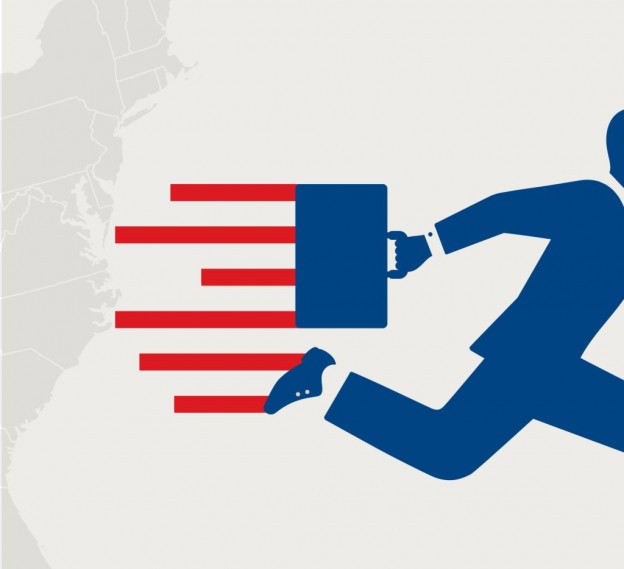BY AMY SOTO- On September 22, 2014, the United States Treasury Department announced a new set of measures aimed at reducing the tax benefits of corporate inversions. The government has struggled as of late to keep U.S.-based companies in America because foreign countries provide a more hospitable tax environment for corporations. The U.S. tax code imposes a heavy income tax on corporations and income earned abroad. As a result, American companies with operations overseas are incentivized to restructure, whether by acquisition of or by mergerwith a foreign competitor, and reincorporate where the foreign company is domiciled. In doing so, U.S. companies are able to avoid the heavy corporate tax burden they face in America and boost their earnings.
Canada has recently garnered attention for its competitive corporate tax rate and has emerged as a corporate tax haven. The most notable tax inversion proposal to date is the high-profile deal between Miami-based Burger King and the Canadian coffee and doughnut chain, Tim Hortons. With a corporate tax rate of 26.5% in Ontario, it is easy to understand why Burger King would be interested in avoiding Uncle Sam’s 35% federal tax bill. In another example, in 2010, California-basedValeant Pharmaceuticals International restructured with Biovail Corporation, a Canadian pharmaceutical company, and re-domiciled in Montreal in an effort to enjoy the more favorable tax environment.
In order to curb corporate inversions, the Treasury Department set a number of rule changes resulting in adverse tax consequences. If after the inversion less than 25% of the new entity’s business activity is in the new foreign country AND the shareholders of the old U.S. company own at least 60% of the shares of the new foreign company, then tax consequences depend on the continuing ownership stake of the new foreign company by the American company. Specifically, if the ownership stake of the American company in the combined corporations’ stock is 80% or more, then the new foreign company is treated as a U.S. corporation for tax purposes. The Treasury Department indicated the possibility of reducing the ownership stake threshold from 80% to 50%; however, such a change would require Congress to pass corporate tax reform legislation.
The new Treasury Department measures will not likely have an effect on the proposed agreement between Burger King and Tim Hortons. Under the proposal, Burger King’s majority owner, 3G Capital, will hold 51% of the new company thus allowing Burger King to avoid the reach of the new regulations. In fact, the new regulations are unlikely to have a major effect on thwarting inversions because most inversions involve transactions in the continuing ownership range of 60 to 80%.
While inverters may be portrayed as unpatriotic and corporate deserters, inversions are entirely legal. Corporations argue that inversions are not only legal, but that they have a fiduciary duty to maximize their shareholders’ returns. The Treasury Department has yet to offer a figure for the tax revenue lost as a result of tax inversion, but estimates place the loss at billions of dollars per year. Without comprehensive tax reform, it seems that companies will continue to leave the U.S., and Canada will remain attractive to inverters who are looking to take advantage of Canada’s competitive tax rates as well as its stable government and economy. Essentially, Canada says, “Have it your way.”
IMAGE CREDIT: Fortune Magazine





